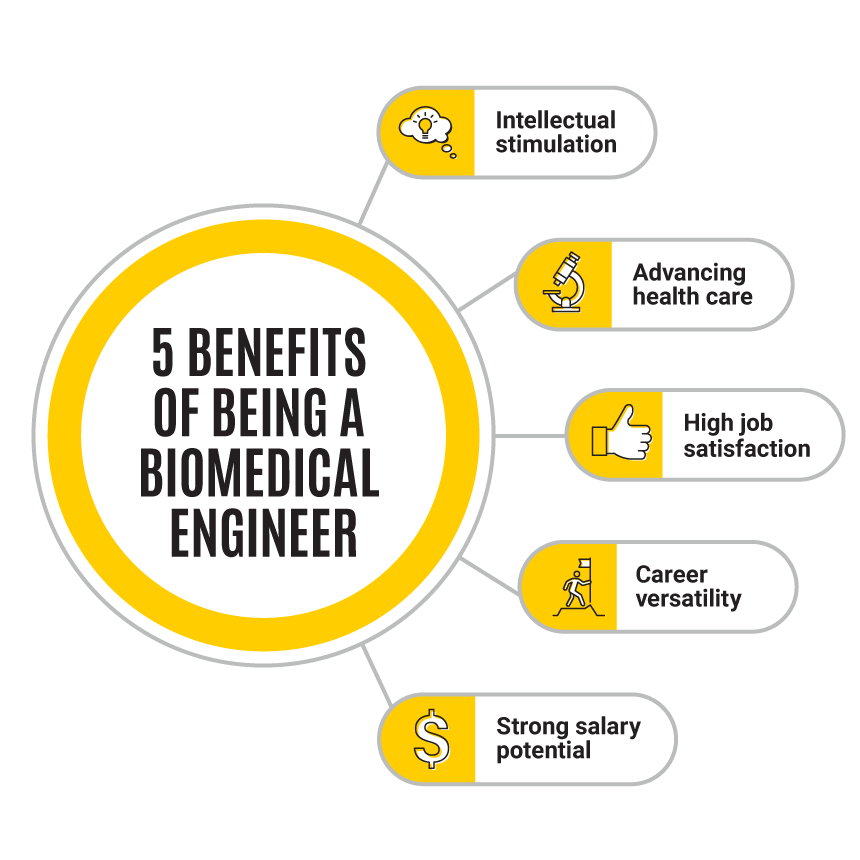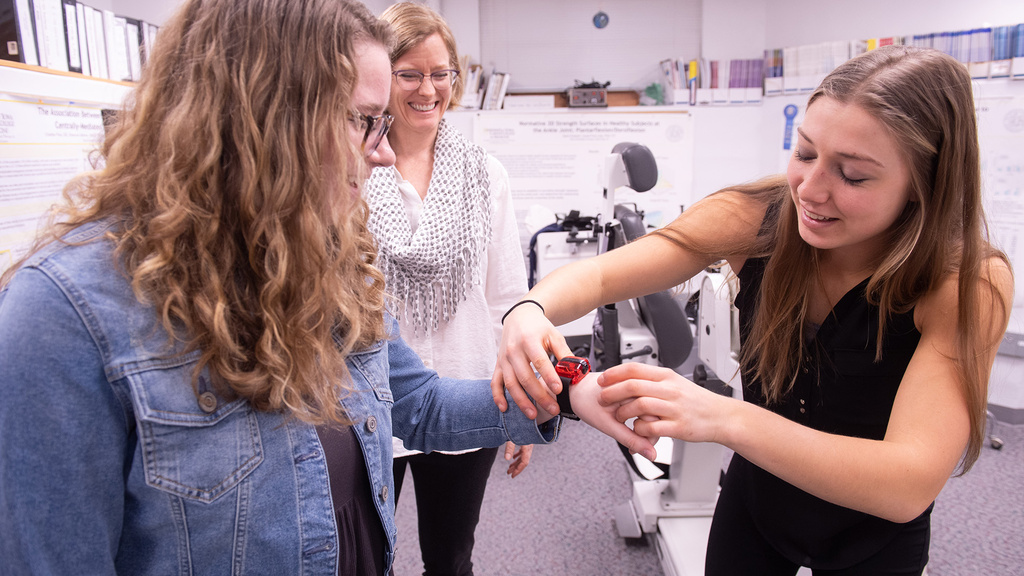Demand is there for biomedical engineers — and the pay is pretty decent, too. Learn how to put yourself in the best position to get hired.
If you’re thinking about getting a biomedical engineering degree, you’re probably excited by the idea of combining science, technology, and health care to make a real difference in people’s lives. But you also might be wondering, “Will I actually be able to find a job after graduation?”
It’s a common question that many students ask. Let’s look at the types of jobs you can get, the demand for biomedical engineers, and what it takes to succeed in this exciting field.
What kind of job can I get with a biomedical engineering degree?
Graduates with a biomedical engineering degree can go down a wide range of career paths. Whether you’re interested in working directly with health care professionals, conducting research, or developing innovative medical solutions, there’s a biomedical engineering job for you.
Depending on the type of biomedical engineering you pursue, some jobs you might consider include:
- Clinical engineer: Make sure hospitals run smoothly with the latest tech.
- Instrumentation engineer: Develop new equipment and software used in the creation and production of medical devices.
- Manufacturing engineer: Develop and refine processes for manufacturing medical devices or products so they can be marketed.
- Medical device designer: Build tools that save lives, from pacemakers to robotic surgery systems.
- Quality engineer: Ensure that medical devices meet FDA standards for safety and efficacy.
- Regulatory affairs specialist: Help bring new medical products to market safely and legally.
- Rehabilitation engineer: Design, build, and adapt technology to help people with disabilities increase their functional abilities and independence.
- Research and development (R&D) engineer: Work in labs to invent the next big thing in biotech or pharma.
- Software engineer: Responsible for the analysis, design, programming, debugging and modification of software applications and testing solutions.
Are biomedical engineers in high demand?
Yes. Biomedical engineers are increasingly in demand, and the trend is expected to continue. The U.S. Bureau of Labor Statistics predicts about 1,300 openings for biomedical engineering jobs each year over the next decade.
Advancements in medical devices, imaging systems, and treatment methods are driving the need for professionals who can bridge the gap between engineering and health care.
Some industries that see a particularly strong demand for biomedical engineers include scientific research and development services, medical equipment and supplies manufacturing, and pharmaceutical and medicine manufacturing.
You’ll find biomedical engineers are in more demand in certain parts of the country.
10 states with the highest employment for biomedical engineers

Source: U.S. Bureau of Labor Statistics
How do I find a job with a biomedical engineering degree?
The biomedical engineering field may be growing, but landing your first job can be competitive. Success often depends on more than just getting your degree.
Here are a few things you can do as a student that can make a difference:
- Get an internship: Hands-on experience is key. Many employers look for candidates who have previously worked in labs, hospitals, or industry settings.
- Participate in research: This can help you prepare for your post-graduation plans by developing crucial skills such as problem-solving abilities and critical thinking, building professional relationships, and boosting graduate school applications.
- Network: Building connections with professors, alumni, fellow students, and professionals in the field can open doors.
When choosing a college or university for biomedical engineering, look at what resources it offers to help students find internships, participate in research, or write résumés and cover letters. For example, University of Iowa College of Engineering students can tap into knowledge from faculty and staff through Engineering Career Services, Undergraduate Research Opportunities, and the Hanson Center for Communication, among others. They also benefit from a strong partnership between the engineering college and the University of Iowa Carver College of Medicine and University of Iowa Health Care.
5 %
for biomedical engineering jobs from 2024 to 2034, higher than the national average for all jobs
How hard is it to be a biomedical engineer?
Biomedical engineering can be a demanding field, but it also can be an extremely rewarding career if you are passionate about improving health care through technological innovation.
Becoming a biomedical engineer requires a solid academic background in both engineering and life sciences — and sometimes software or data science — along with strong problem-solving skills, the ability to adapt to a constantly evolving landscape, and the desire to work closely with health care professionals, researchers, and other engineers.
Like any career, there are advantages and disadvantages to being a biomedical engineer. But despite any challenges, many biomedical engineers find deep satisfaction in knowing their work improves lives, whether it’s through developing a new lifesaving surgical tool or designing a new prosthetic limb that allows someone to resume their favorite activities.

Related content

Biomedical engineering degree jobs: Diverse skills fit a wide range of career paths

Is biomedical engineering a good career?

